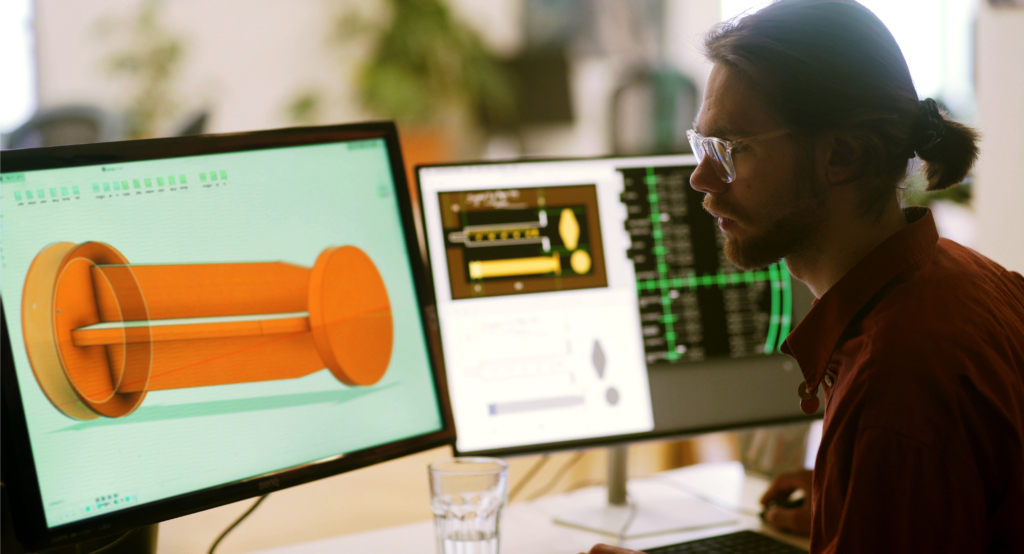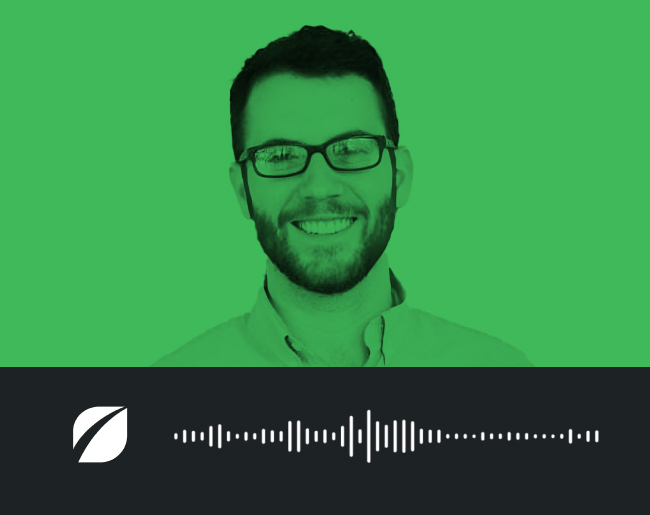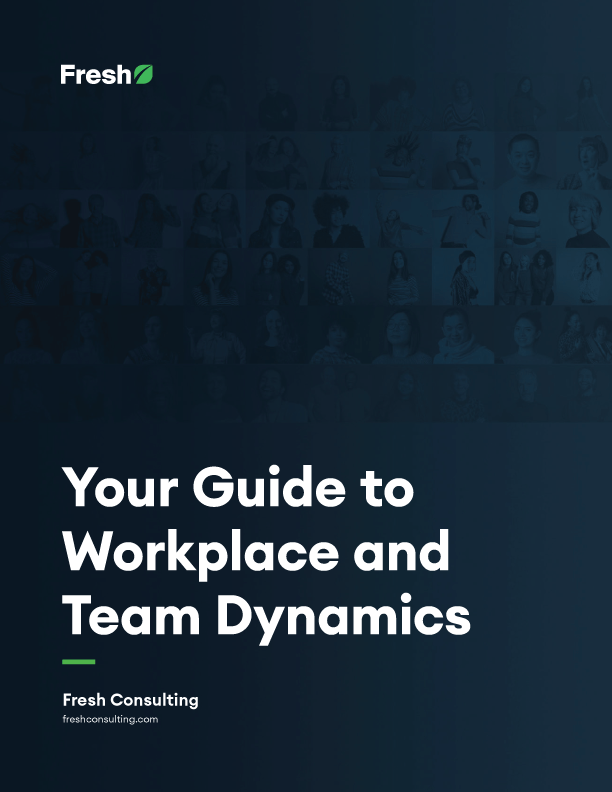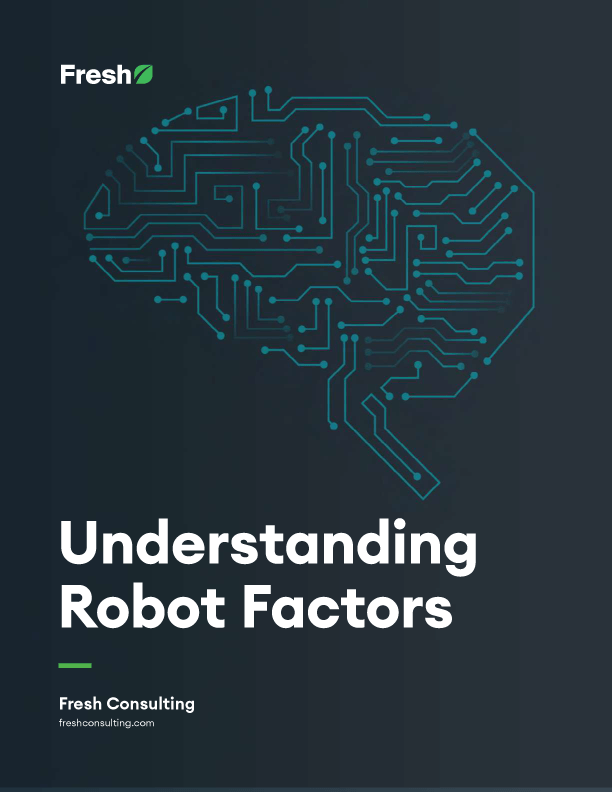Article
How to Build Effective Teams with Personality Tests

One of the most effective ways of understanding workplace and team dynamics at your company is to create a baseline benchmark. At Fresh, we utilize personality tests to better understand our traits, behaviors, and competencies.
As a result of centuries-old explorations into what precisely a personality is, there are dozens of tests. Some exist for the sole purpose of self-exploration and understanding the dynamics of interpersonal communication. Other tests, such as those given to an organization’s employees, are intended to evaluate and predict workplace behavior.
When appropriately implemented, personality tests can be used to screen potential employees, create more effective teams, promote camaraderie between employees, and boost morale by highlighting each individual’s strengths and preferences.
3 Factors to Consider When Choosing a Personality Test
1. Credibility: Tests should avoid encouraging test-takers to answer in a particular way, which leads to biased results. Poorly designed tests yield faulty conclusions based on data biases. Before placing your trust in a personality test, we recommend investigating whether it’s vetted by psychologists. The most effective personality tests are.
2. Applicability: Some tests are general explorations of personality, while others are focused on workplace communication and interaction. General tests can be used for the workplace; for example, the Myers-Briggs Type Indicator test often includes insights and analyses about how different “types” work and collaborate. We recommend choosing a mix of tests that focus directly on workplace behavior and a few that help describe an employee’s personality in broader strokes.
3. Investment: Tests have widely varying formats and lengths. Some are free, and others charge a fee per test-taker or organization. Before investing time and money into a test, you’ll want to make sure it adds to whatever initiative you’re undertaking, whether strengthening the hiring process, conducting team-building exercises, or something else.
Recommended Personality Tests
Myers-Briggs Type Indicator
- Cost: Free or more detailed results for $21.
- Description: The test categorizes one’s personality into four key areas, which exist on a scale.
- Focus Area: MBTI explores an individual’s preferences, yielding insights about strengths and areas for growth. It also provides insights on learning preferences, working styles, and other performance factors.
16 Personalities
- Cost: For the single-person test, the initial test and results are free. An eBook profile on your type is $29. An eBook and courses for your type are $79. For $169, you can access the courses and eBooks for every personality type. Team tests are $9 per member each month.
- Description: The single-person test uses a 1 to 5 rating system for certain phrases (“Does x apply to you?”) like the standard MBTI test; however, the test is geared more towards laypeople and is more playful. Upon completion, the user is given several pages to read through about their personality type, covering several aspects of their life, such as relationships, career, and hobbies. The test is also available for teams.
- Focus Area: The focus is primarily on a better understanding of oneself and others and learning about personal strengths, weaknesses, and preferences.
Big Five Personality Test
- Cost: The test is available on several different sites, usually for free.
- Description: Like MBTI, users are given a short phrase and asked to rate it on a scale of 1 to 5 based on how much they agree with the phrase. The test can usually be completed in under 20 minutes.
- Focus Area: The test gives a broad measure of personality on five dimensions: extroversion, openness, agreeableness, conscientiousness, and neuroticism. The results provide deep insight into how an employee interacts with co-workers, manages work-related stress, and processes managerial decisions.
Strengths Finder
- Cost: $20 for the basic test (only displays the top five strengths), $34 for the book and basic test, and an additional $69 to see all 34 strengths displayed.
- Description: The test consists of 177 paired statements that contradict one another, and test-takers are tasked with choosing the one that best relates to them. The results display the test taker’s top five strengths, although it’s possible to pay extra to see evaluations of all 34 strengths.
- Focus Area: This test focuses solely on a person’s strengths, which can be natural talents, skills an individual develops easily, and fields they can succeed in with little chance of failing. It’s primarily used for team building and motivating individuals.
DISC Behavior Inventory
- Cost: Anywhere from $30 to $70, depending on where it is being purchased and whether it is for an individual or a team. The test is also available for free on several sites like Truity with a limited free report.
- Description: The test-taker must rank statements from 1 to 5 based on how much the statement applies to them. The test takes 20 minutes or less.
- Focus Area: The DISC classifies candidates into four different “styles” based on questions about their behaviors at work. It helps organizations find out more about a team member’s tendencies toward dominance, influence, support, and control in their work.
Predictive Index
- Cost: It’s priced as a platform, not an individual test, so it’s a recurring subscription that depends on the number of employees at the organization.
- Description: In the cognitive assessment, the user is given 50 questions in 4 minutes, at around 15 seconds per question. The questions are multiple-choice and centered around logic, numerics, and patterns. In the behavior assessment, the user is given 86 adjectives and asked to select all that apply to them, and then they must select the ones they feel others would use to describe them.
- Focus Area: Both tests are used to determine a person’s aptitude for certain roles within a business, not necessarily what a person’s preferences or motivations are. Unlike the other tests, this one is strictly corporate, with the goal of placing people into a job role as successfully as possible.
OPQ32
- Cost: Varies based on the size of the organization.
- Description: The test comprises 104 questions and takes around 30 minutes to complete, depending on which version of the test is being taken. Each question gives the test-taker four statements, and they choose the one that best represents them and least represents them.
- Focus Area: The “32” in OPQ32 is for the 32 personality characteristics measured by the test. These personality traits break down into three categories: relationship with people, thinking style, and emotions. The test is specifically geared towards career assessment, making it a valuable tool for hiring managers and HR departments.
Caliper
- Cost: $250 but varies based on an organization’s needs.
- Description: This is a multiple-choice test made up of 180 questions. There is no way to fail the test, though it does grade the test-taker on different areas of work-life and can be used to give someone an aptitude score for a generic role, like a salesperson.
- Focus Area: The evaluation covers several areas related to workplace capabilities including leadership, interpersonal skills, problem-solving, and time management.
Hogan Personality Inventory
- Cost: Varies by the audience.
- Description: The test comes in different variations depending on who is taking the test, who is evaluating the test, and what the test is being used for. It consists of 206 questions about the test-taker, each with answers on a scale of 1 to 5 (I agree, I don’t agree).
- Focus Area: The HPI is used to evaluate a person’s leadership abilities, style of working, and occupations they are best suited for. It tests for qualities like adjustment, ambition, sociability, interpersonal sensitivity, prudence, inquisitiveness, service orientation, stress tolerance, reliability, sales potential, and managerial potential.
Holland Codes
- Cost: Free
- Description: The test-taker rates 48 tasks based on how much they would enjoy performing each task on a scale of 1 to 5. It takes 10-15 minutes to complete.
- Focus Area: This test is typically completed by students or job seekers and is used to develop an idea of the kinds of jobs a person might enjoy. It breaks a person’s personality into six categories, which make up the RIASEC acronym: realistic, investigative, artistic, social, enterprising, and conventional.
Belbin
- Cost: $50 per individual report, an additional $110 for team results.
- Description: It’s a multiple-choice questionnaire, with questions focusing on self-reflection. The test takes 15-20 minutes to complete, yielding a report that analyzes teams and individuals’ strengths and weaknesses.
- Focus Area: This test focuses on creating structured teams by analyzing how people fit into action-oriented roles, people-oriented roles, and thought-oriented roles.









